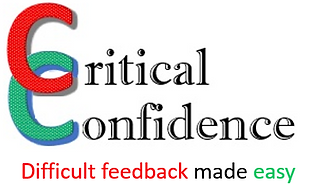Enhance Communication: Soft Skills Consulting Solutions
- Jason Jarvis
- Jul 4
- 5 min read
In today's fast-paced world, effective communication is more important than ever. Whether in the workplace, at home, or in social settings, the ability to convey ideas clearly and listen actively can make a significant difference. Soft skills, particularly communication skills, are essential for building relationships, resolving conflicts, and achieving personal and professional goals.
This blog post will explore how soft skills consulting solutions can enhance communication. We will discuss the importance of soft skills, the benefits of consulting services, and practical strategies to improve communication.
Understanding Soft Skills
Soft skills are personal attributes that enable someone to interact effectively and harmoniously with others. Unlike hard skills, which are specific and technical, soft skills are more about how we relate to others.
Some key soft skills include:
Communication: The ability to express ideas clearly and listen to others.
Teamwork: Working well with others to achieve a common goal.
Problem-solving: Finding solutions to challenges and conflicts.
Emotional intelligence: Understanding and managing your emotions and those of others.
These skills are crucial in both personal and professional settings. They help create a positive environment, foster collaboration, and enhance productivity.
The Importance of Communication Skills
Effective communication is the backbone of any successful relationship. It allows individuals to share ideas, express feelings, and resolve misunderstandings. Here are a few reasons why communication skills are vital:
Building Relationships: Good communication helps establish trust and rapport. When people feel heard and understood, they are more likely to engage positively.
Conflict Resolution: Misunderstandings can lead to conflicts. Strong communication skills enable individuals to address issues calmly and constructively.
Career Advancement: In the workplace, those with excellent communication skills often stand out. They are more likely to be promoted and take on leadership roles.
Personal Growth: Effective communication can lead to better relationships with family and friends. It helps individuals express their needs and understand others better.
The Role of Soft Skills Consulting
Soft skills consulting focuses on helping individuals and organizations develop their interpersonal skills. These services can be tailored to meet specific needs, whether for a team, a department, or an entire organization.
Benefits of Soft Skills Consulting
Customized Training: Consulting services can provide tailored training programs that address specific communication challenges within an organization.
Expert Guidance: Consultants bring expertise and experience. They can offer insights and strategies that may not be apparent to those within the organization.
Improved Team Dynamics: By enhancing communication skills, teams can work more effectively together. This leads to better collaboration and increased productivity.
Long-term Impact: Investing in soft skills can have lasting benefits. Improved communication can lead to a more positive workplace culture and better employee retention.
Practical Strategies for Enhancing Communication
Improving communication skills takes practice and dedication. Here are some practical strategies that individuals and organizations can implement:
1. Active Listening
Active listening is a crucial component of effective communication. It involves fully concentrating on what the speaker is saying, rather than just passively hearing the words.
Tips for Active Listening:
Maintain eye contact to show engagement.
Nod or use verbal affirmations to indicate understanding.
Avoid interrupting the speaker. Allow them to finish their thoughts before responding.
2. Clear and Concise Messaging
When communicating, clarity is key. Avoid jargon and complex language. Instead, aim for simplicity and directness.
Tips for Clear Messaging:
Organize your thoughts before speaking or writing.
Use short sentences and simple words.
Be specific about your message to avoid misunderstandings.
3. Nonverbal Communication
Nonverbal cues, such as body language and facial expressions, play a significant role in communication. Being aware of these signals can enhance your message.
Tips for Nonverbal Communication:
Pay attention to your posture and gestures.
Use facial expressions to convey emotions.
Be mindful of the tone of your voice, as it can affect how your message is received.
4. Empathy and Emotional Intelligence
Understanding the emotions of others is essential for effective communication. Empathy allows you to connect with others on a deeper level.
Tips for Developing Empathy:
Try to see things from the other person's perspective.
Acknowledge their feelings and validate their experiences.
Practice patience and understanding, especially in challenging conversations.
5. Feedback and Reflection
Receiving feedback is crucial for growth. It helps individuals understand their strengths and areas for improvement.
Tips for Seeking Feedback:
Ask for constructive criticism from trusted colleagues or friends.
Reflect on your communication experiences to identify patterns.
Be open to making changes based on feedback.
Implementing Soft Skills Training
To effectively enhance communication skills, organizations can implement soft skills training programs. Here are some steps to consider:
1. Assess Needs
Before starting a training program, assess the specific communication needs of your team or organization. This can be done through surveys, interviews, or focus groups.
2. Set Goals
Establish clear goals for the training program. What specific communication skills do you want to improve? Setting measurable objectives will help track progress.
3. Choose the Right Consultant
Select a consultant with experience in soft skills training. Look for someone who understands your industry and can tailor the program to your needs.
4. Engage Employees
Encourage participation from all team members. Create a supportive environment where everyone feels comfortable sharing their thoughts and experiences.
5. Evaluate Progress
After the training, evaluate its effectiveness. Gather feedback from participants and assess whether communication has improved within the organization.
Real-World Examples of Successful Communication Training
Many organizations have successfully implemented soft skills training to enhance communication. Here are a few examples:
Example 1: Tech Company
A tech company noticed that miscommunication was leading to project delays. They hired a soft skills consultant to conduct workshops on effective communication.
After the training, team members reported feeling more confident in expressing their ideas. Project timelines improved, and collaboration increased.
Example 2: Healthcare Organization
A healthcare organization faced challenges in patient communication. They implemented a soft skills training program focused on empathy and active listening.
As a result, patient satisfaction scores improved significantly. Staff members felt more equipped to handle difficult conversations with patients and families.
The Future of Communication Skills
As the workplace continues to evolve, the importance of communication skills will only grow. With the rise of remote work and digital communication, the ability to connect effectively is more crucial than ever.
Organizations that invest in soft skills training will be better positioned to adapt to these changes. They will foster a culture of open communication, collaboration, and innovation.
Final Thoughts
Enhancing communication through soft skills consulting solutions is a valuable investment for individuals and organizations alike. By focusing on active listening, clear messaging, nonverbal communication, empathy, and feedback, anyone can improve their communication skills.
As we navigate an increasingly complex world, the ability to communicate effectively will remain a key driver of success. Embrace the journey of developing these essential skills, and watch as your relationships and opportunities flourish.




Comments